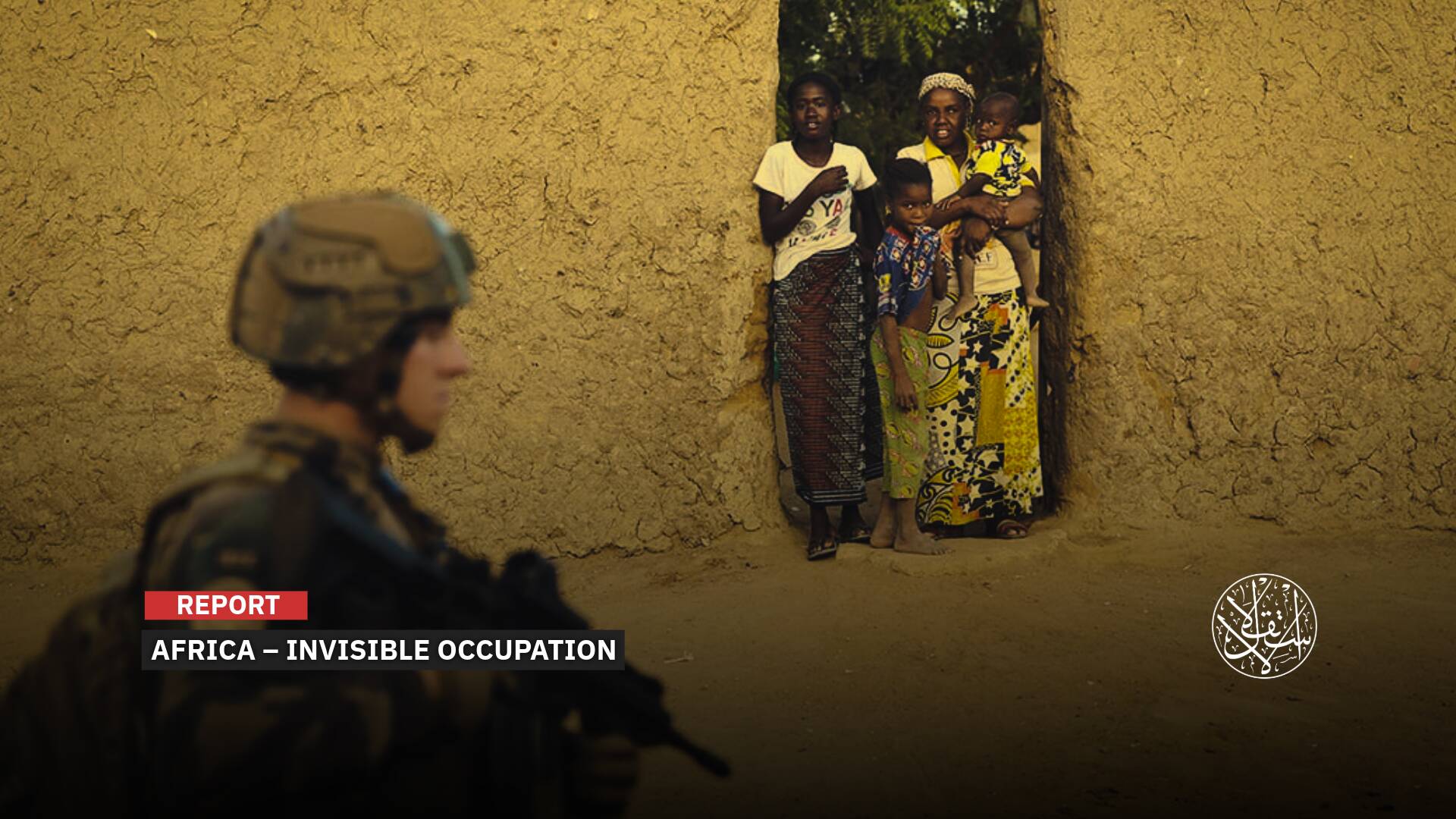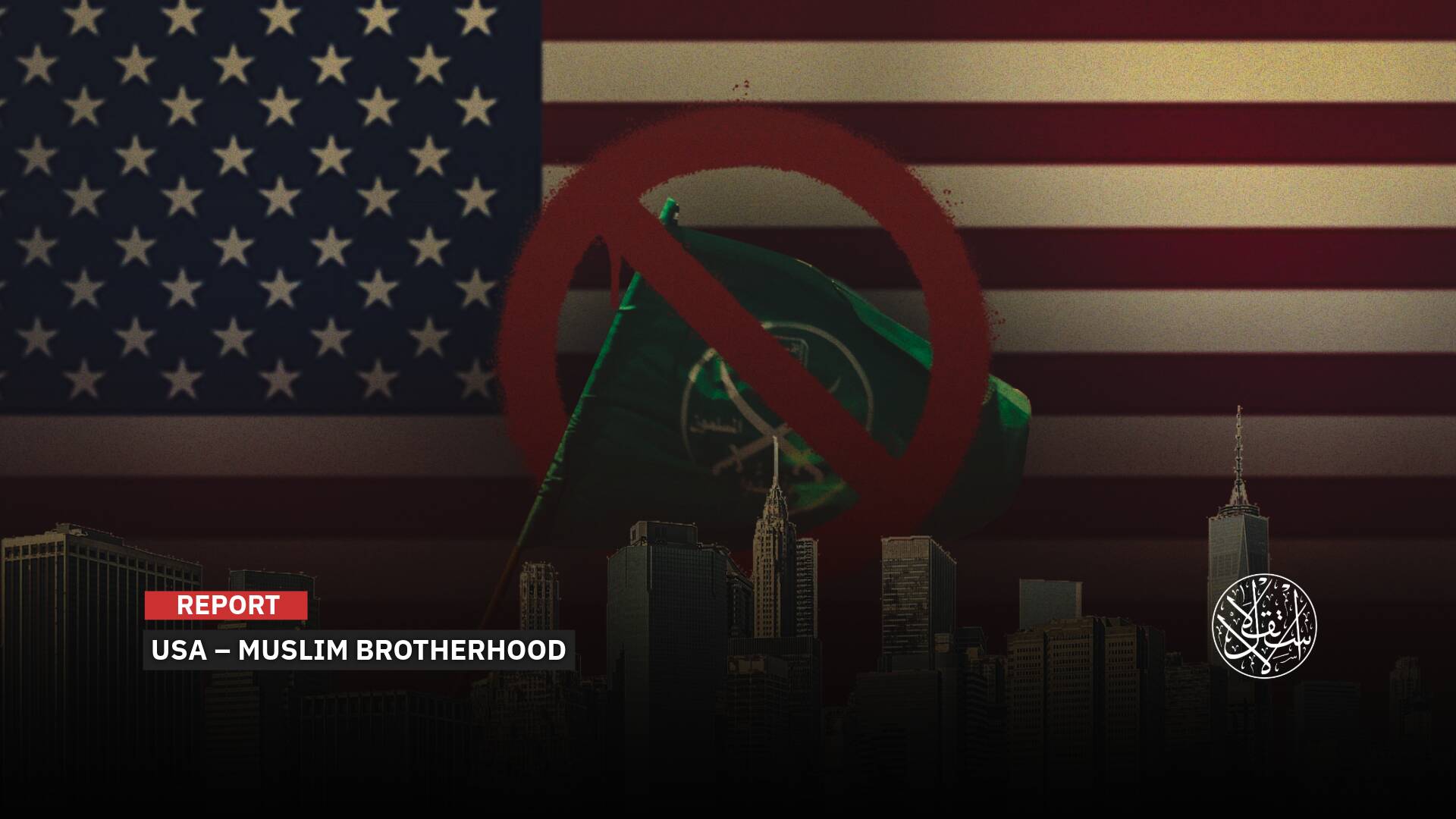Switzerland at Risk of EU Blacklist: What Are the Implications of That?
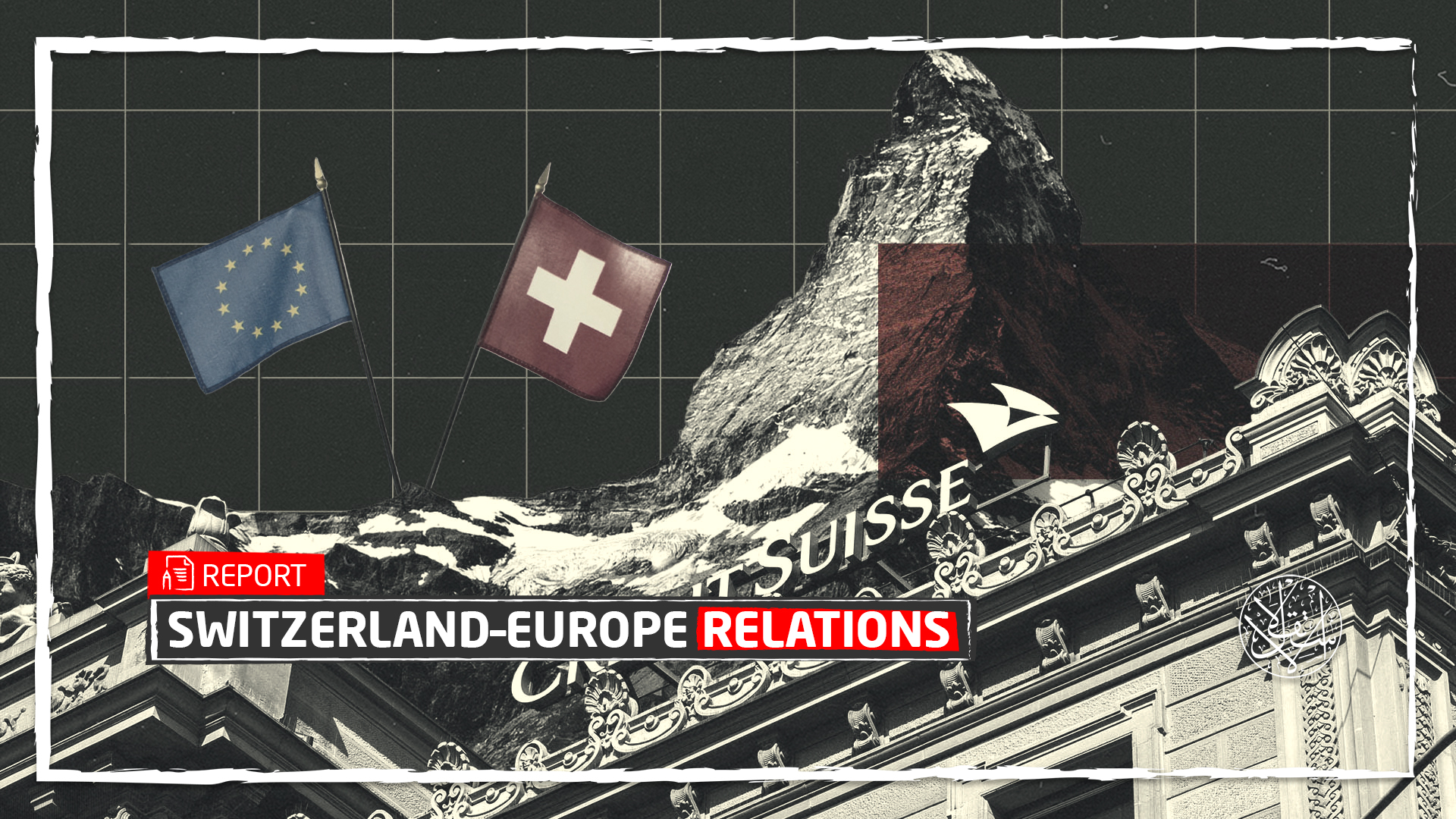
Since the Credit Suisse leaks became public, voices in Europe are calling for Switzerland to be included in the European Union's blacklist of dirty money, these are the demands led by the main political grouping in the European Parliament, according to what was reported by Reuters on February 21, 2022.
While experts said that such a move could be disastrous for the financial sector in Switzerland, which in this case would face the kind of heightened due diligence that applies to operations associated with rogue states.
On February 20, the ‘Suisse Secrets’ investigation had shed rare light on one of the world's largest financial centers, and also revealed how Switzerland's famous bank secrecy laws helped facilitate the pillaging of countries in the developing world.
Switzerland Under Pressure
Switzerland is facing calls at home and abroad to clean up its financial sector in the wake of the so-called ‘Switzerland Secrets’ controversy, which erupted following the release of leaked data from banking giant Credit Suisse.
Many see the scandal as evidence of a systematic failure in the Swiss banking sector, which has undergone major reforms in recent years in an attempt to get rid of the image that has been associated with it as a financial haven for laundering and laundering suspicious money.
The Socialists and the Swiss Green Party have called for strengthening anti-money laundering laws and giving the Federal Financial Markets Supervisory Authority (FINMA) the power to fine banks if they fail to carry out adequate anti-money laundering checks.
The European People's Party (EPP), the conservative grouping with the largest number of seats in the European Parliament, also called on the EU Commission, on February 21, to re-evaluate Switzerland as a country with a high risk of money laundering, according to Reuters.
On February 22, spokesmen for the Socialists and Democrats (S&D) and Renew Europe, the second and third largest groups in the European Parliament, respectively, voiced their support for the idea of blacklisting the banking giant.
The three groups make up 60% of the European Parliament, which indicates that a majority of members now favor tough measures to tackle Switzerland's behavior as a tax haven.
In turn, the EU said that banking privacy laws should not be used as an excuse to facilitate such activity, while the European Commission urged to reconsider whether Switzerland poses a threat to the financial integrity of the Union.
A spokesperson for the European Commission also noted that “the blacklist had been updated in January, and no time had been set for the next review.”
However, this move will also need stronger political support from the European Commission, as well as from EU member states.
The EU's blacklist of dirty money is the list of countries that pose financial risks to the EU, due to shortcomings in combating money laundering and terrorist financing, the current list does not include any European country.
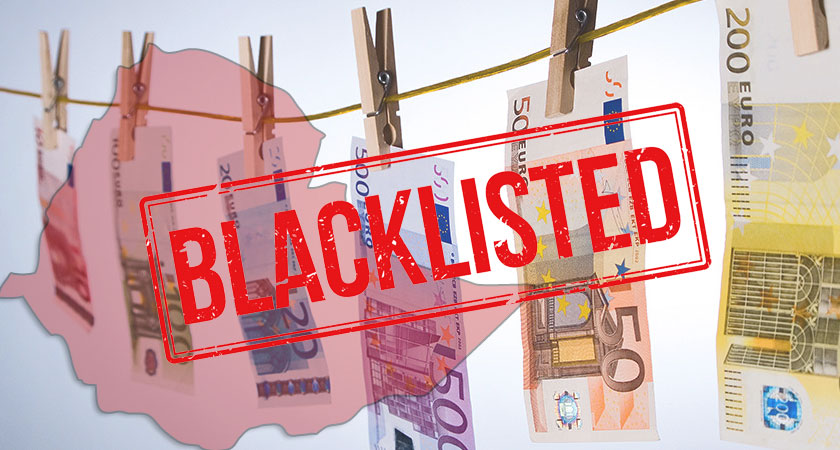
In turn, Dr. Yahya Sayed Omar, a researcher in political economy, indicated in a statement to Al-Estiklal that “the inclusion of Switzerland in the blacklist has not taken place yet, and is still under study,” stressing at the same time that the issue of financial transparency in Switzerland is not new.
“Previously, Switzerland was among the list of tax havens, as it was a refuge for businessmen, athletes and politicians, who wanted to evade taxes; but in 2019 its name was removed from this blacklist after reports that Switzerland had addressed this shortcoming,” he added.
“For many decades, Switzerland has been one of the most famous and highly reliable financial environment in the world, and its inclusion in the blacklist would harm its financial reputation and, consequently, decline in its banking role, this applies indirectly to the European Union, given the intertwined banking and financial relations, in addition, it affects the financial reputation of the European Union in general,” Dr. Sayed Omar emphasized.
“With regard to the reasons for the Swiss financial imbalance and its non-compliance with EU standards, Switzerland is primarily a service economy, financial and banking services and tourism are the backbone of the Swiss economy, that makes it consider any strict criteria to limit its financial ability, which it fears will affect its national returns, especially as it is threatened with an economic contraction of up to 6%,” he explained.
“For those reasons mentioned earlier, Switzerland did not comply with the financial standards related to money laundering and tax evasion, in addition to hosting deposits of businessmen under international sanctions, and politicians convicted of human rights crimes, and therefore it sought to strengthen its service economy,” he explained.
“For years, there have been suspicions about Switzerland's breach of European financial standards, but the majority of these suspicions have not been proven. Currently, the Credit Suisse leaks constitute one of the proofs of these suspicions, which has raised the voices calling for Switzerland to be placed on the blacklist,” Dr. Sayed Omar stressed.

Secret Money Cave
Markus Ferber, EPP Economic Coordinator, said: “When Swiss banks fail to properly apply international anti-money laundering standards, Switzerland itself becomes a high-risk jurisdiction.”
“The close relations between European and Swiss banks mean that the deficiencies in the fight against money laundering in the Swiss banking industry are a problem for the European financial sector,” Ferber emphasized.
The Swiss government has not commented on this until the time of preparing the report, but the State Secretariat for International Financial Matters confirmed in a statement that “Switzerland meets all international standards on the exchange of information in tax matters and the fight against money laundering, terrorist financing and corruption.”
Some voices have also been raised in Switzerland, speaking of an unfair attack on Swiss banks tainted with a heavy dose of hypocrisy.
Jorg Gasser, chief executive of the Swiss Exchangers Association, accused the media of producing emotionally charged reports that ignored other countries' practices and behavior in the field.
Gasser alluded to France and Germany, which are battling to emerge winners in a power struggle in order to seize the taxes lost in Britain as a result of the United Kingdom's withdrawal from the EU.

It is noteworthy that Swiss banking secrecy has long caused controversy due to its exploitation by many foreign taxpayers to hide money from tax authorities in their home countries, despite pledges to improve.
The latest leaks are likely to intensify legal and political scrutiny of the Swiss banking sector, and in particular Credit Suisse.
Especially since it was followed by several leaks exposing the secretive business of Swiss banks, law firms and offshore financial service providers, such as: Pandora Papers (2021), Paradise Papers (2017) and Panama Papers (2016).
Some thought these practices ended in 2018, when Switzerland agreed to the automatic exchange of information for tax reasons in the face of international pressure.
However, what has been revealed during the past four years, we find that Swiss banks still maintain some banking secrecy for their important clients.

Implications of Being Blacklisted
According to the Guardian, Switzerland's blacklisting by the EU could affect professionals regulated by law, such as bankers, lawyers, who may be required to conduct strict due diligence on any transaction or business relationship with any person or company in the country.
If that materializes, Switzerland will see its financial sector lose much of its reputation, according to Daniel Thelesklaf, the former head of the country's anti-money laundering authority (MROS).
He concluded that “unless the country undergoes a massive change in culture, it will soon lose the trust of its remaining clients.”
Tom Keatinge, the director of the Center for Financial Crime and Security Studies at the defense think tank RUSI, told the newspaper: “An EU listing could have a significant and ripple effect on Swiss banks, as well as its broader financial sector, with the potential for serious collateral damage.”
As for the Swiss authorities, its inclusion on the list has few direct effects, but it will lead to increased diplomatic pressure to conform to international standards and the demands of the EU.
The blacklisted countries face only limited sanctions, including freezing European aid or development financing.
It is noteworthy that in 2017, Switzerland has been included in the EU blacklist because it offered foreign companies and wealthy people easy conditions to deposit their money in the country's banks.
However, Switzerland was removed from the blacklist in 2019 because the Swiss tax system replaced old facilities with new regulations in line with international standards.
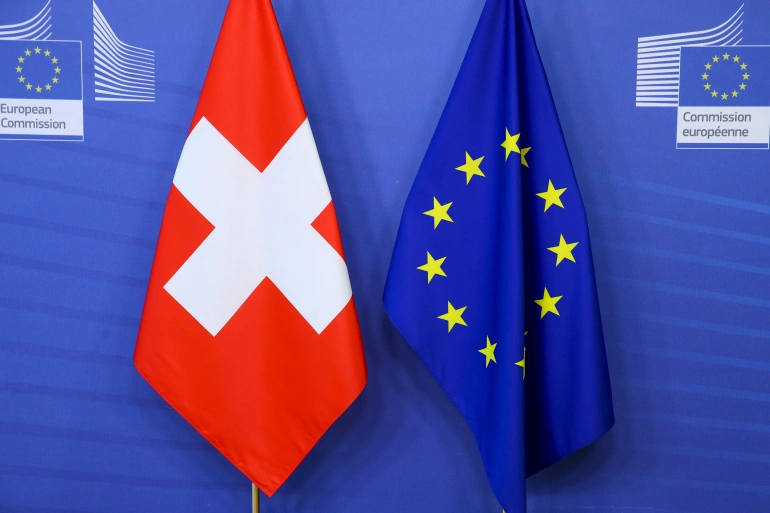
In turn, the economist Dr. Moustafa Shahin explained in a statement to Al-Estiklal that “there are written agreements and conditions between the EU and the United States to ensure legal transparency and follow-up on the fate of the funds.”
“The EU and the United States have controls over their citizens opening any bank accounts in Switzerland or in a country in the world, because they don't evade taxes, so Switzerland complies with those controls. The problem lies in Switzerland’s relation with developing countries that do not adhere to the law in the first place,” he pointed out.
“The EU is aware of all the abuses committed by Swiss banks. I think that the displacement of all the wealth of developing countries to Switzerland is a deliberate thing and has to do with the domination of the Western world over the underdeveloped world,” Dr. Shahin said.
From the point of view of lawyer Mr. Zaid al-Azem, who explained in a statement to Al-Estiklal that “Switzerland is financially and even politically affiliated with the United States, which is responsible for provoking these leaks.”
“There are several goals of leaking those bank accounts to those corrupt and criminals, perhaps the American goal is to achieve justice and hold those involved accountable, but on the other hand, we find that taking advantage of these funds to revitalize the stagnant international economy is the biggest motive behind this,” he added.
Lawyer Mr. al-Azem also emphasized the American connection to the case by referring to the system of money transfers across the world (SWIFT), it is not possible to transfer any US dollar across the world without going through the US server.
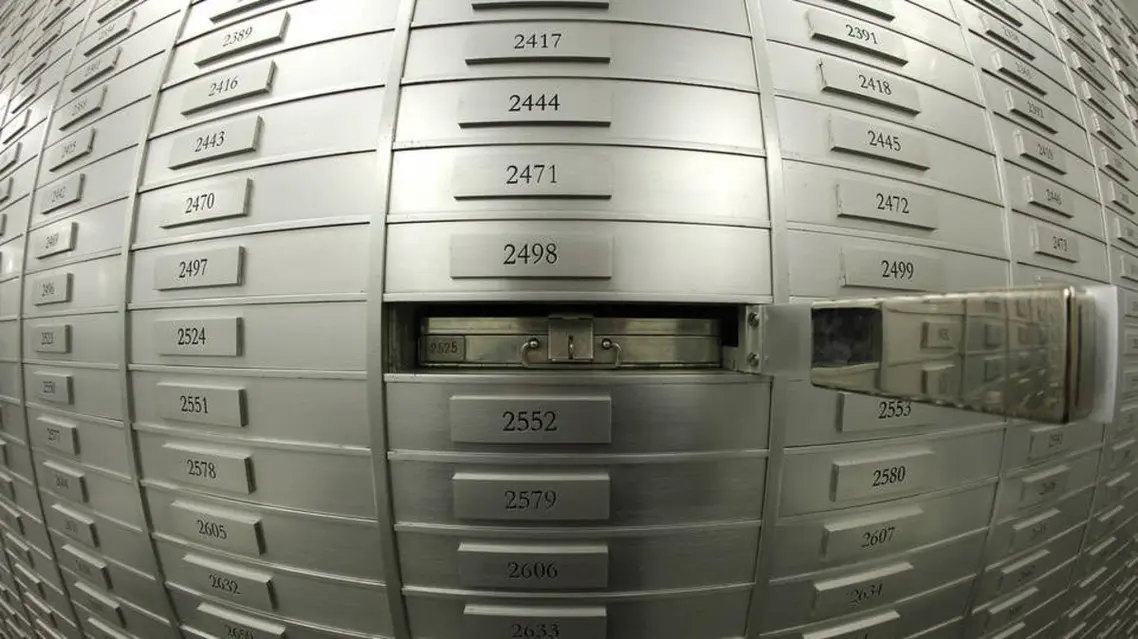
Switzerland's Neutrality
Switzerland is not a member state of the EU but is bound to it through a series of bilateral treaties in which Switzerland has adopted many provisions of Union law in order to participate in the European single market, without joining the union as a member state.
For years, the EU assumed that Switzerland would one day join it, so it allowed it to follow its own two-way path, but, whatever the case, the country at the heart of continental Europe is getting farther from Brussels by the day, and even has no intention of doing so. To join originally, according to observers.
From the point of view of the EU, Switzerland is a difficult country. In 1992, by a very small majority (50.3%), Swiss voters rejected the country's entry into the EEA.
In 2021, the Swiss government decided to end negotiations for a controversial institutional framework agreement on relations with the EU.
It is noteworthy that the economic relations between the EU and Switzerland are governed by more than 100 agreements dating back to 1972, amid Europe's fears that the effect of those agreements will fade over time.
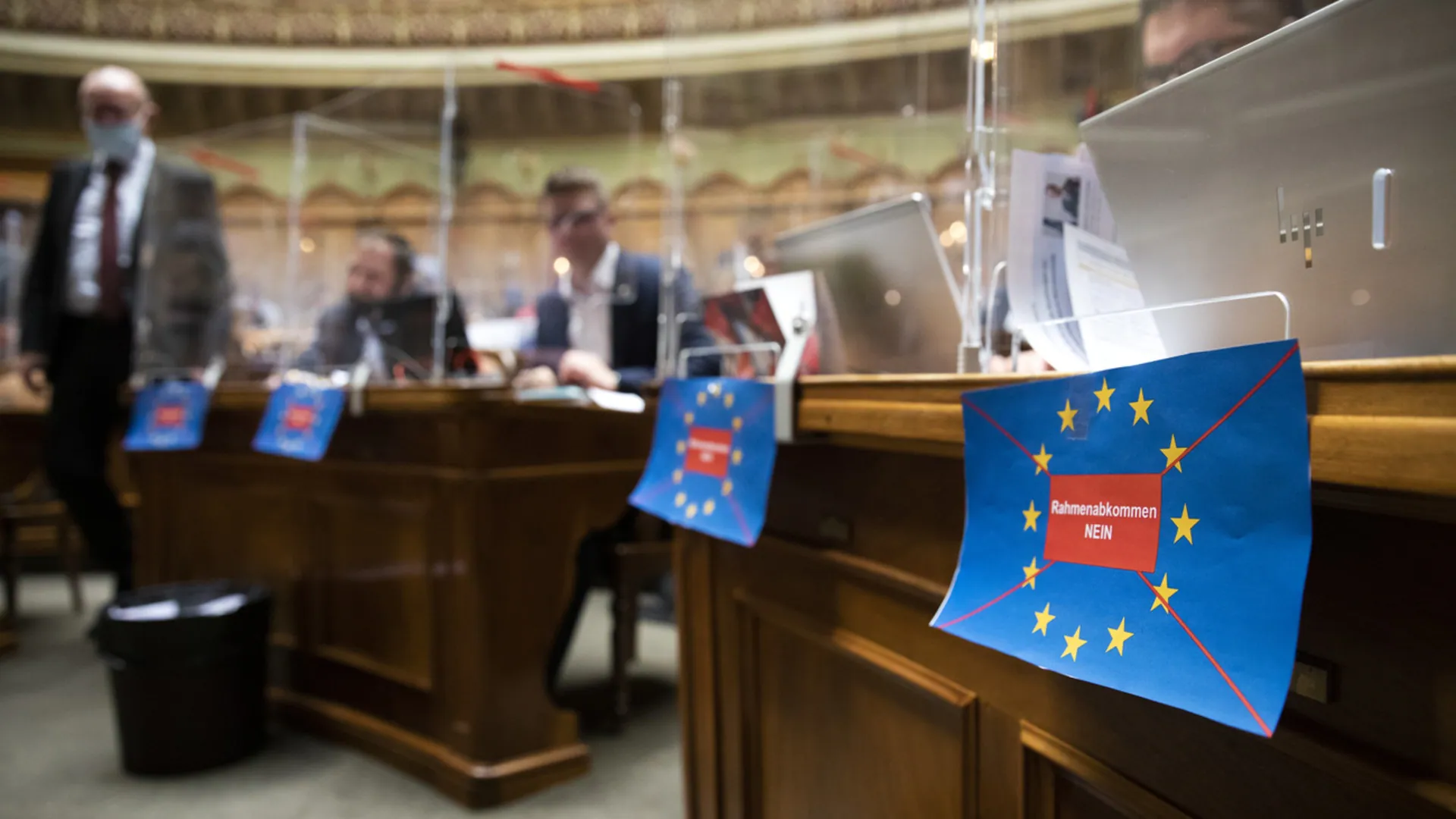
There are several reasons why Switzerland does not want to join the EU, and also refuses to conclude a framework agreement with it.
Due to the stable nature of the Swiss economy, the money deposited in Swiss banks remains mostly safe and immune from most global disasters including wars, conflicts and economic collapses; therefore, it is considered a safe option for many and the most suitable refuge for suspicious money.
In addition to the wealth of Switzerland, which is the largest external wealth center in the world, according to estimates, Switzerland managed 27% of all cross-border assets, that's about $2.5 trillion worth of foreign individuals and families at the end of 2018.
Therefore, observers see that these two factors are part of the reasons for Switzerland's refusal to fully join the EU.
In addition, since 1516 Switzerland has adhered to a policy of complete neutrality. It does not participate in, does not interfere in any war, and does not join any union, bloc or organization.
It adhered to complete neutrality towards all parties in the first and second world wars, refused to be a member of the EU, did not join NATO, and did not join the United Nations until 2002.
Sources
- EU Parliament's top group suggests blacklisting Switzerland after Credit Suisse leaks
- Credit Suisse leak: three largest parties call for EU to assess Switzerland risk
- Initiative to Blacklist Switzerland Gains Traction in EU
- Vast leak alleges Credit Suisse accounts held by corrupt officials and criminals
- EXPLAINED: Why is Switzerland not part of the European Union?





